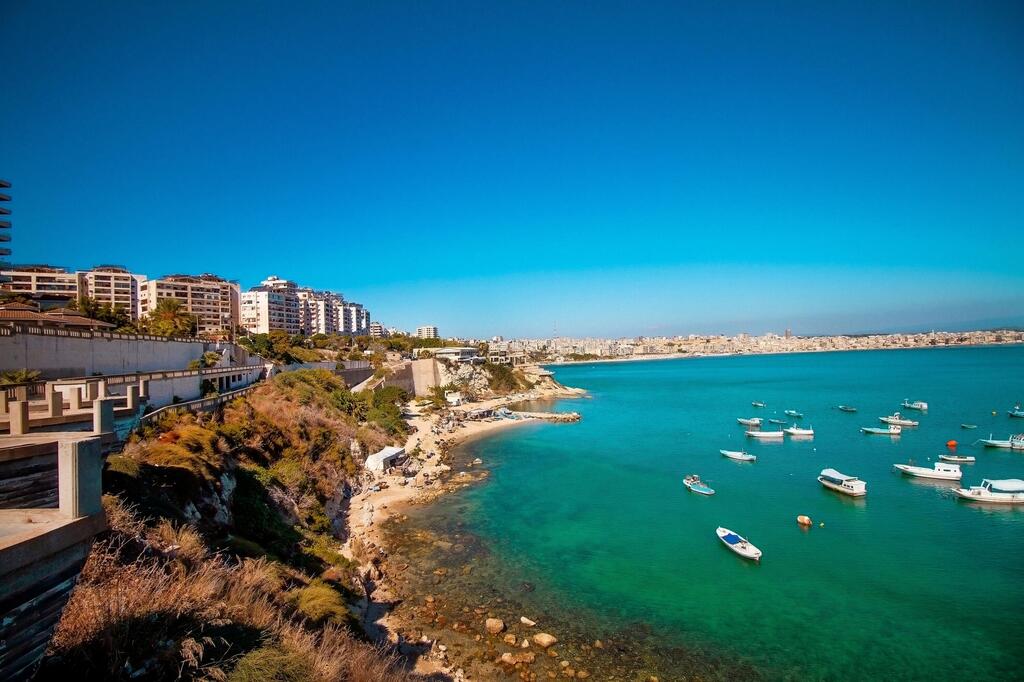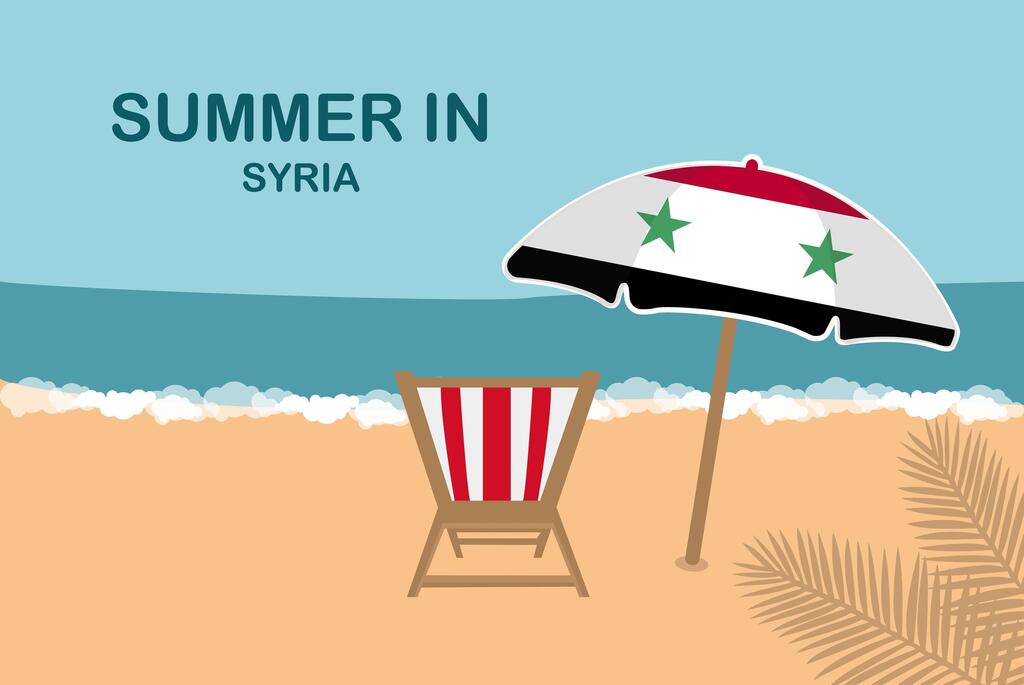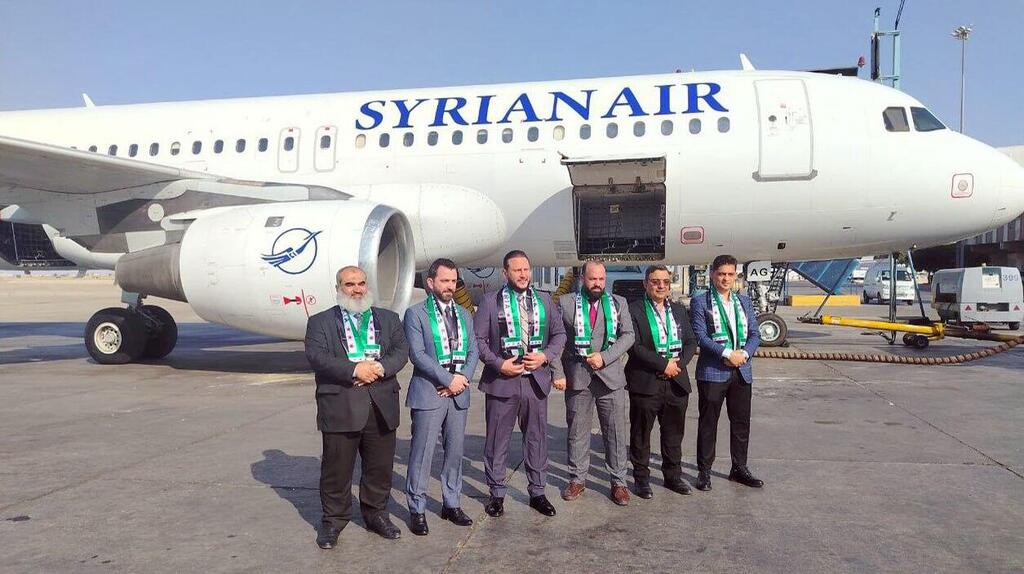Rapid changes in Syria are forcing the country to confront a new challenge: responding to the unexpected wave of tourists flooding the country in recent months. The influx began shortly after the fall of former president Bashar Assad’s regime and gained momentum following the U.S. announcement of sanctions relief.
As Syria prepares for its first real tourism season in over a decade, existing hotels are already filled to capacity. Visitors include not only investors who see economic opportunities in Syria and have arrived to explore business ventures, but also Syrian nationals, Arab tourists and foreigners.
For now, Syria is unprepared to handle such a volume of visitors. According to a recent report in the Saudi-owned newspaper Asharq Al-Awsat, there is a shortage of fully equipped hotel rooms, with only 65 fully operational hotels in Damascus—most of them run down and in need of renovation.
The report noted that travel agencies and hotel operators have been overwhelmed by the surge in visitors following the regime’s collapse, with occupancy rates in most hotels hitting 100 percent. Meanwhile, service quality has declined and prices have become chaotic.
Citing government sources, the report added that Syrian authorities are paying particular attention to restoring the tourism sector along the coastal region. There are currently 32 tourist facilities along the coast, offering a total of 7,000 beds.
The tourism sector, the report said, was among the hardest hit during the war, with estimated losses totaling $2.3 trillion since 2011. These losses include direct damage such as the destruction of hotels and historic or religious sites, as well as indirect losses from business closures and job losses.
The damage, however, extends beyond hotels and tourist sites. To fully rebuild its tourism industry, Syria must address broader systemic challenges, including security and transportation infrastructure. In an attempt to tackle at least the security aspect, Syria’s ministries of tourism and interior have recently launched joint efforts and trained special police units to improve safety for tourists.
The Syrian Ministry of Tourism announced last month that the first cohort of its new “Tourism Police” has completed training at the police academy in Damascus. Speaking at the graduation ceremony, Tourism Minister Mazen al-Salhani said his ministry “continues its efforts to develop and revive Syria’s tourism sector.” He added that the new police directorate, created in collaboration with the Ministry of Interior, aims to enhance visitor security and ensure the highest level of service. “Together, we can make Syria a leading tourist destination,” he said.
As part of its tourism revival efforts, Syria inaugurated a new five-star hotel, the Art House, in Damascus’s upscale Mezzeh neighborhood. The ceremony was attended by the tourism minister. Prior to the fall of Assad, Mezzeh was one of the Israeli military’s primary targets in Syria due to the presence of Iranian forces, Hezbollah and other pro-Iranian militias that had entrenched themselves in the area. At the time, many residents sought to sell their homes—but with the regime’s fall, the situation has since changed.
In coverage of the hotel’s opening, Syrian media described the move as “a sign of the return of tourism activity to the city” and emphasized the hotel’s cultural and artistic contribution to the tourism sector. The luxury property has four floors and ten themed rooms, each named after a different artist and decorated in their style. The hotel has also created 45 new jobs.
Hotel manager Pierre Bashir al-Khouri called the Art House “a cultural showcase that helps improve Syria’s tourism image.” The hotel features a special exhibition and concert hall, swimming pools and a yoga room. The building itself dates back 400 years.
In April, the Royal Semiramis Hotel in Damascus also reopened. The five-star hotel includes 108 rooms, 10 luxury suites and four restaurants. Syrian media noted that the hotel provides around 200 jobs in hospitality and tourism and that “its reopening is part of the Ministry of Tourism’s efforts to revitalize the hotel sector, improve its readiness to receive visitors and strengthen Damascus’s position as a respected tourist destination.”
'The days of fearing pineapples are over'
In recent weeks, reports of the return of tropical fruits to Syrian markets has added a vacation-like flair to the country’s tentative reopening. After years of bans on their import and sale, pineapples, mangoes and kiwis are once again being sold openly. With the fall of the Assad regime came new economic openness, allowing goods previously prohibited to reenter the market. The recent easing of U.S. sanctions has also been a key boost to Syria’s fragile economy.
In an interview with Agence France-Presse, vendor Marwan Abu al-Hayla said the tropical fruits had returned to market stalls. “Today we display them openly—the days of fearing pineapples are over,” he said, recalling how merchants once had to smuggle the fruits hidden inside car engines.
“It is preferable to wear loose clothing that covers the shoulders and knees and to avoid transparent or very tight clothing. Standard swimwear is generally permitted at international resorts, four-star hotels, private pools and beach clubs—as long as it adheres to public decorum."
Despite the visual transformation of shopfronts, AFP noted the stark economic contrast—about 90 percent of Syrians still live below the poverty line. One Syrian woman interviewed said that while store windows are now more colorful, she still cannot afford to buy fruit and avoids letting her children walk past them.
Air travel to Syria is also slowly resuming. Last month, excitement filled Damascus International Airport as Saudi airline flynas landed its first passenger flight there in 12 years. The airport has seen a rise in activity ahead of Eid al-Adha celebrations.
Get the Ynetnews app on your smartphone: Google Play: https://bit.ly/4eJ37pE | Apple App Store: https://bit.ly/3ZL7iNv
Still, the regime’s efforts to project openness have sparked debate. Only last month, the Ministry of Tourism issued new safety guidelines for beach and pool visitors, calling on the public to wear “appropriate” swimwear that “respects public decency and the feelings of different segments of society."
The guidelines stipulate that women must wear cover-ups or robes over swimsuits when walking between beach and public areas, and men must wear shirts. Public exposure outside designated swimming zones is forbidden.
The ministry added that in public places, “it is preferable to wear loose clothing that covers the shoulders and knees and to avoid transparent or very tight clothing.” Standard swimwear is generally permitted at international resorts, four-star hotels, private pools and beach clubs—as long as it adheres to public decorum.
The rules drew mixed reactions on social media. Some users criticized the government’s priorities and called for an end to personal restrictions, saying authorities should “let people breathe” and “stop interfering with individual taste.” Others welcomed the guidelines, viewing them as a reflection of Syrian cultural values.
While these steps demonstrate Syria’s intent to revive its tourism sector, the country still faces a long road before it can become the region’s next hot destination.






